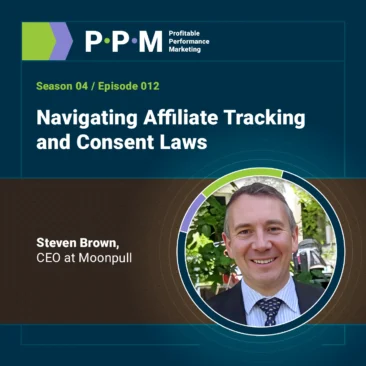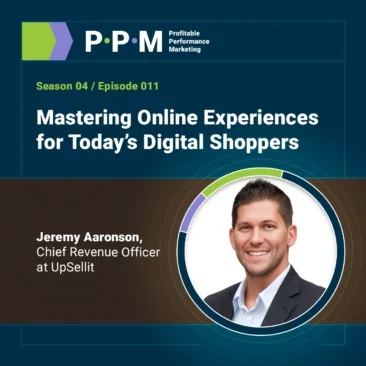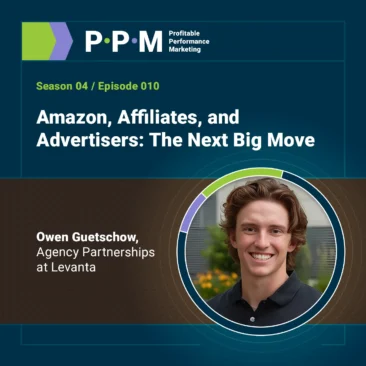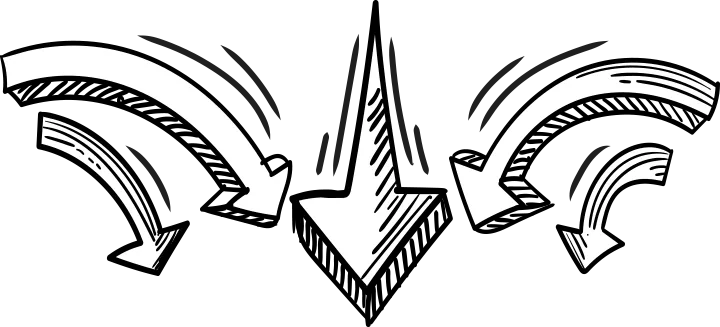Season 01 / Episode 015
Brian Marcus – Partnerships, Incrementality, and TUNE
Guest: Brian Marcus - Vice President of Global Marketing and Partnerships at TUNE
Note: if you get only a 30 second preview, please log into your Spotify account, or find us on one of several other podcast services.
Summary
Or 15th Episode! Today I talk with Brian Marcus, the Vice President of Global Marketing and Partnerships at TUNE. Brian and I go way back, we’ve both been in this industry for decades, navigated the same circles and have come really close to actually meeting many many times. But until we started this podcast, Brian and I haven’t had the chance to actually meet. It’s pretty crazy that we have so many common friends and acquaintances, been to so many of the same events, include TUNE events, and we hadn’t actually met. Well I am glad we did, and I think the conversation we have will make you think that as well.
Brian and I dive into his career path and leadership lessons – Brian has worked at old school hundred year old catalogers, platforms, and one of the largest ecommerce companies on the planet. His experience both in breadth and depth is impressive.
We dive into incrementality of affiliate programs extensively and talk about some real interesting tests he has conducted with loyalty and coupon sites. You definitely want to listen to that section.
Brian brings a truly unique perspective to this podcast and I am so thankful he spent time with me this week.
He also wanted us to share TUNE’s Ultimate Guide to Partner Marketing, their comprehensive guide to running an affiliate program. Go grab it today!
About Our Guest:
Brian has been in the industry since the early 90s, with previous roles for The Cambridge Group, JC Whitney, Performics, Google and eBay.
He is currently the vice president of global marketing and partnerships at TUNE (a partner marketing platform), where he manages media, agency and technology partnerships. He is also an advisor for the University of Washington’s Professional & Continued Education Board.
Brian Marcus on the Web
Listen
Share
Notify
Top Tips
Using humor to lead can be useful, especially in times like these. Brian explains that early on in his career he had a CEO [Stuart Frankel] who was not only bright and humble, but humorous as well. He says that using humor to teach people and create safety is incredibly helpful. Humor can help teams recover quickly in stressful situations.
Creating a successful partnership involves being able to paint a vision. Brian speaks about how you must start with a hypothesis and a sound rationale for why you want to approach a certain partnership. He mentions that you shouldn’t say no to partners, unless they are bad actors. You should be open to all, but determine the right price and terms of the partnership. Why wouldn’t you work with someone if can make money? You must ensure that everyone understands the value, but also set an objective experiment that involves asking “if I were to shut the partnership down, does the traffic come back or go elsewhere?” The overall goal is to prove that your hypothesis was correct – and paint a bigger picture of where you can go with partnerships within the channel.
Highlights
Pattern matching is a great skill to develop throughout your career.
“Pattern matching involves applying commonly seen or experienced activities to understand where a certain situation might go. If you work with several clients, you can put together a set of tactics or strategies after seeing something over and over… I look at pattern matching as a great skillset to develop throughout your career, from industry to industry or job to job.”
If you are uncertain on the direction of your career, go broad first with your experiences, and then find something more specific or deep.
“If you are someone like me, who frankly had no business being in business at first, you need to gain experiences across different industries to be able to sort through what you want to do… I recommend going broad first so you don’t feed confined. It doesn’t hurt to join an agency or consulting firm, and cut your teeth on frameworks and ways of thinking so you can approach everything. You can then go deep when you become invaluable and a subject-matter expert, and your expertise is worth something pretty valuable.”
Quotes
[10:49] – “Going broad [with my master’s degree subject] helped me make an entrance into a brand-new industry like the internet or e-commerce. I essentially learned pattern matching, and could look at different clients with similar situations and create, in my own way, certain playbooks. When I think about ecommerce, there are so many lessons you can learn from the offline world with a fundamental understanding of marketing, and you can apply them in an automated digital format.”
[38:10] – “I was at Google during the recession, and even though Google can be isolated, it did create a lot of change. Google was proactive and ready, and Claire [Hughes Johnson] spoke a lot about being authentic and transparent to your team. There was an authenticity required during this hard time, where folks didn’t want to see two different people. They wanted to know who was leading them, if they were trustworthy and if they going to make it safe to do their job. She was big on transformative change, with foundations in transparency as a leader to gain trust.”
[40:40] – “Larry Page once got on a weekly meeting in front of the entire Google company to take questions, and one of things he said when the recession hit was – ‘with scarcity, comes clarity.’ The recession was a time for many people to panic, but Larry was optimistic and he felt that during hard times, you can’t have everything you need and have to think about what’s important.”
[1:03:33] – “There’s a lot of companies out there that have a lot of data and data scientists, but they don’t put enough weight on the relationship side of it and too much weight on the empirical data. There’s an art and a science, a head and a heart, and a balance. Empathy and understanding helps people work together to find the best solutions to test. Relationship matters, particularly in affiliate, but in everything you do.”





